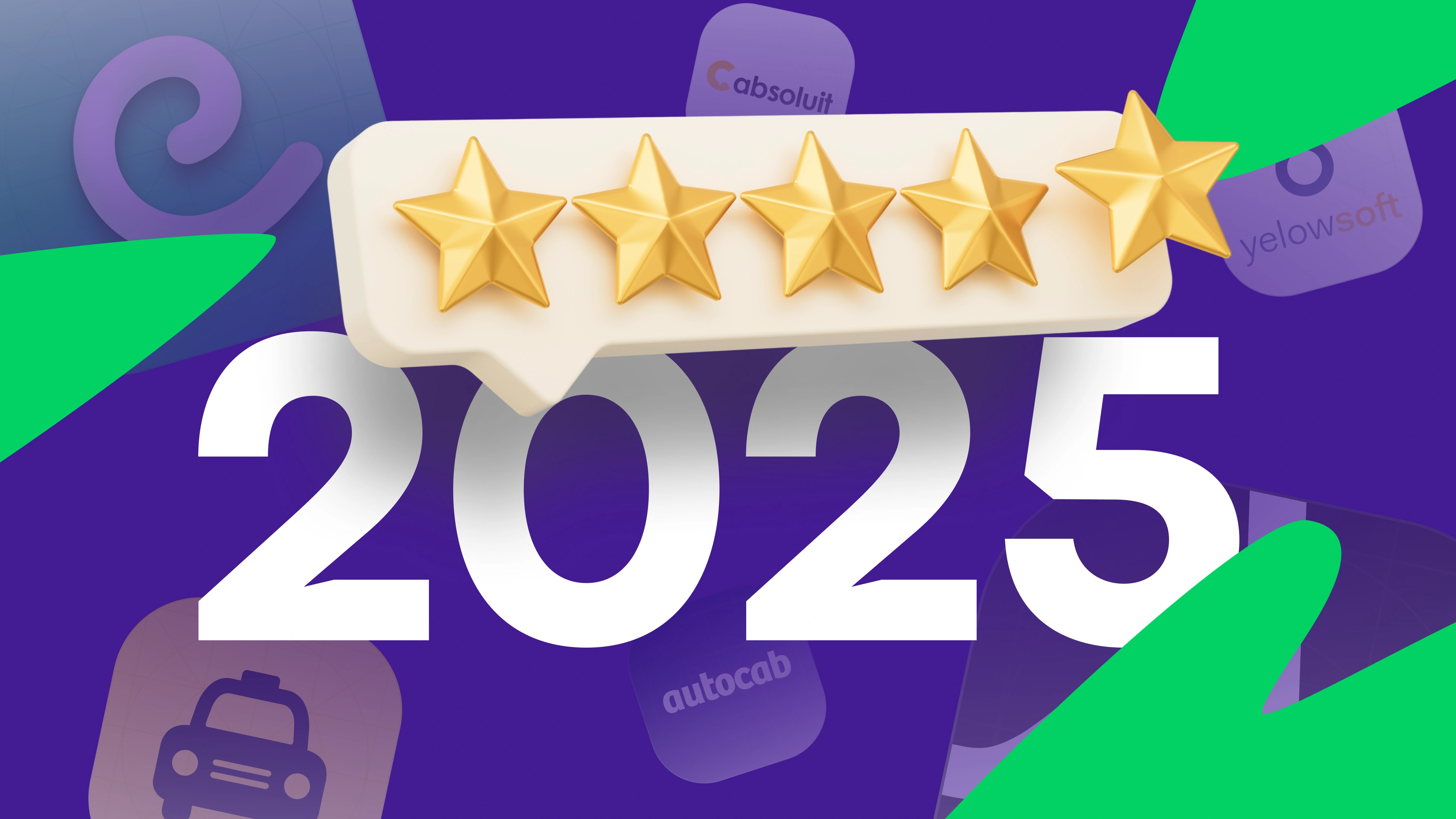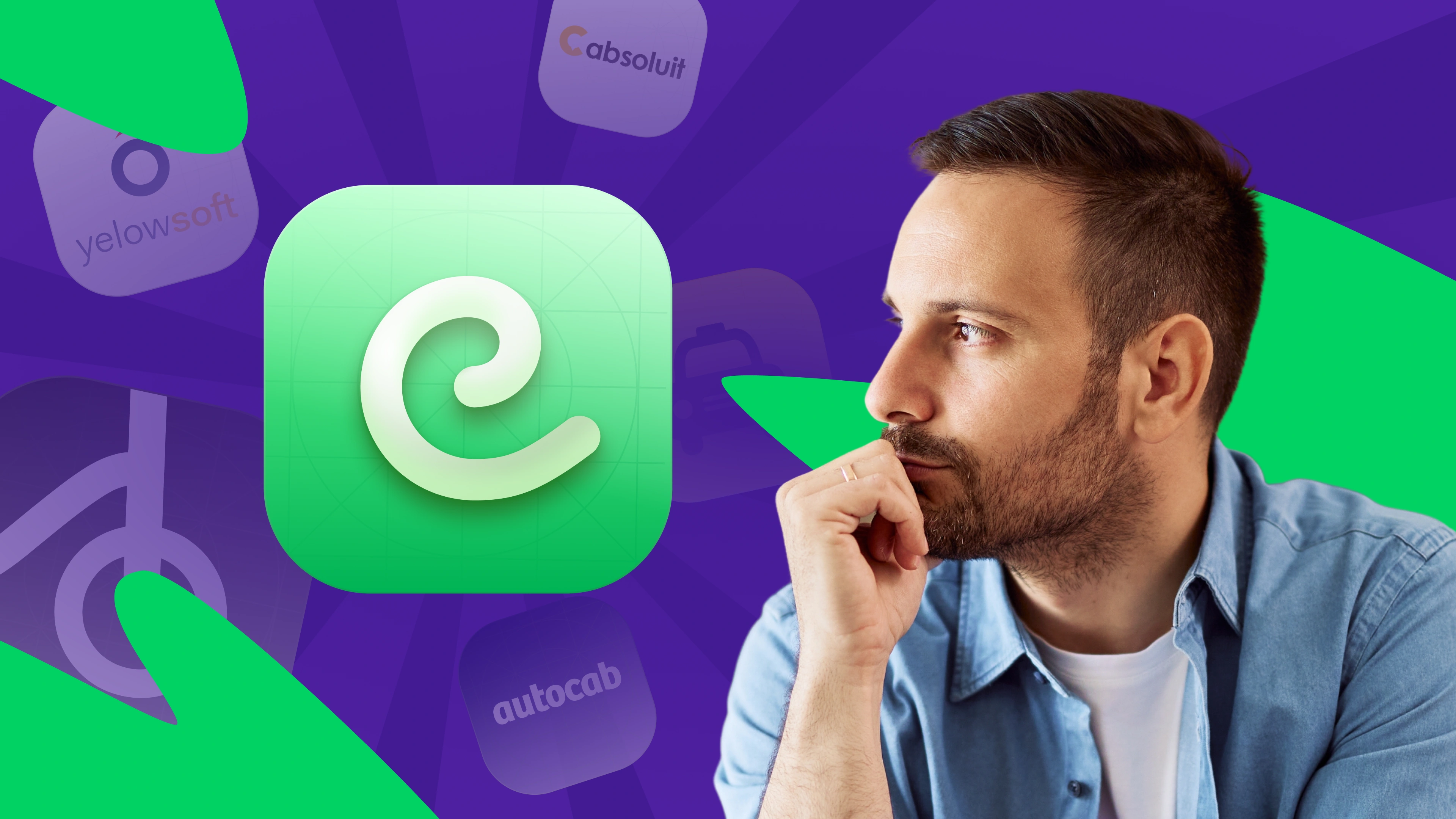
Software as a Service ride-hailing platforms offer an increasingly popular alternative to custom-built solutions. Why invest in a lengthy development cycle when entrepreneurs can launch fast and greatly reduce maintenance costs thanks to SaaS?
Of course, not all SaaS providers are alike. From core functionality to pricing models to stability, the differences can be significant. So let's compare leading SaaS ride-hailing software platforms to find which one would work for your business goals.
1. Onde (formerly TaxiStartup)
Best for: Ride-hailing businesses that want to launch fast and scale reliably
Onde is a global SaaS ride-hailing platform with extensive experience launching and scaling app-based mobility services. The platform includes white-label apps (Driver and Passenger), a stable and fully managed backend, marketing and ASO support, and optional delivery integration for super app capabilities. With lifetime updates, modern UX, and launch support included in every plan, Onde delivers great value for money.
Advantage | Onde | Other SaaS ride-hailing platforms |
Mobile apps with your branding | ✅ Included in all plans | ❌ Often limited or add-on only |
Regular feature updates | ✅ Free for all customers | ❌ Manual or delayed for some users |
Reliability | ✅ 99% uptime, 2M+ orders daily | ❌ Varies across vendors |
Launch support + ASO | ✅ Included in all plans | ❌ Rarely included |
Super app potential | ✅ Via Playfood integration | ❌ Not always available |
Key features:
- All apps included even in the basic plan with no extra charges
- Real-time dispatch system and admin panel with a variety of access tiers
- Multiple “builds” tailored to business size:
- Startup version – streamlined, no excess features
- Ride Club – enterprise-grade solution with dedicated dev & growth teams
- AI-powered analytics with demand predictions, performance insights, and actionable recommendations to boost efficiency and revenue
- Public API for custom integrations
- Global launch availability with the broadest multi-language and multi-currency support among SaaS ride-hailing platforms
- 24/7 tech support with direct access to an account manager in all plans
Pricing: One-time setup fee, then flexible monthly revenue share or fixed rate with no fleet size limits.
Pros: Reliable, well-designed apps and backend; flexible for any stage of business. No developer team or tech skills required. Data migration and app launch are handled by Onde.
Cons: Less optimized for certain on-demand niches such as fleet-only operations, micromobility, or peer-to-peer ride-sharing models
2. TaxiCaller
Best for: Smaller, traditional taxi companies that want dispatch-focused software with optional apps.
TaxiCaller is a cloud-based dispatch system designed primarily for taxi and transport companies transitioning to digital operations. It offers core booking and fleet management tools, with optional rider and driver apps. The platform emphasizes dispatch efficiency and flexibility in setup but has limited marketing and brand-building features.
Key features:
- Cloud-based dispatch dashboard for web and mobile
- Optional rider and driver apps
- Phone booking integration and manual dispatch tools
- Fleet tracking, invoicing, and reporting
- Pay-per-use or subscription pricing options
Pricing: Pay-per-use (per booking) or monthly subscription; app branding incurs additional fees.
Pros: Strong dispatch tools with voice booking support; great for operators used to traditional workflows.
Cons: White-label apps cost extra; limited number of supported languages; fewer integrated payment gateways; less suitable for startups or tech-first mobility businesses
3. Cabsoluit
Best for: Taxi companies seeking lightweight SaaS with less emphasis on customization.
Cabsoluit offers a cloud-native ride-hailing platform that’s simple to set up and use. It provides core features like real-time dispatch, web and mobile apps, analytics, and driver management in a SaaS model that prioritizes ease of access over deep customization. It's best suited for small to mid-sized companies looking for a fast go-live timeline with minimal complexity.
Key features:
- Live tracking and dispatching
- Driver and passenger mobile apps
- Basic analytics dashboard
- Cloud-based admin panel
- Support for ride scheduling
Pricing: Pay-as-you-go pricing model; custom quotes available
Pros: Easy to launch, good for lean teams; suitable for small fleets of 3-5 cars.
Cons: Limited branding options; not ideal for enterprise-level operations.
4. Yelowsoft
Best for: Businesses that want to define the scope of features and are prepared to pay for add-ons and updates
Yelowsoft develops tailored software for taxi, delivery, pharma, and other on-demand verticals. The platform offers flexibility in features and configuration, but additional costs can apply for support, updates, or scaling.
Pricing plans include trip caps, which can become expensive as your volume grows. Best suited for operators who need unique features and have in-house tech resources to manage the platform.
Key features:
- Free demo and basic SaaS access
- Passenger and driver apps for iOS & Android
- Admin dashboard with dispatch, driver management, and reporting
- Support for multiple languages and regions (some advanced features at extra cost)
- Optional integrations and API access (available upon request)
- Delivery app connection (premium feature)
Pricing Model: SaaS pricing includes a base subscription, variable based on trip volume. Additional features like API access or delivery module may come at extra cost.
Pros: Enables features that can’t be found in ready-made brandable apps.
Cons: Updates and support are not uniformly available across all plans; requires planning and configuration for advanced capabilities.
5. Autocab
Best for: Large taxi fleets (100+ cars) needing enterprise-grade dispatch and call-centre integration
Autocab is a cloud-native platform originating in the UK. It offers a SaaS solution built specifically for taxi and private-hire businesses. Autocab is recognized for enabling traditional operators to modernize through automated dispatching, phone-based booking tools, and membership in the iGo marketplace, which enables driver networks to share booking demand across regions.
Key features:
- Customer & driver apps (iOS & Android)
- White-label functionality
- Voice recognition technology for accepting inbound bookings
- Follow-on bookings
- Web-based booking tool
Pricing: SaaS-based, custom quotes depending on fleet size and required services.
Pros: Suitable for managing large fleets efficiently; access to aggregator trip supply; proven uptime and track record
Cons: Not optimized for small or tech-first fleets; setup may be complex and costly; minimal branding and marketing tools
6. Atom Mobility
Best for: Early-stage startups in micromobility or vehicle rentals
Atom Mobility helps entrepreneurs quickly launch vehicle-sharing and rental services, covering scooters, bikes, mopeds, and cars. The platform offers ready-made rider and driver apps, plus a basic dispatch system, making it possible to go live in as little as 20 days.
This setup is ideal for founders prioritizing speed and short-term experimentation. While it can support ride-hailing, scaling a larger branded app ecosystem or adding more advanced capabilities may require additional investment or integrations.
Key features:
- Branded rider and driver apps
- Dispatch dashboard with real-time tracking, pricing controls, and basic analytics
- Modular system supporting multiple vehicle types
- Integrations for payments, IoT/telematics, and marketing tools
Pricing: Tiered pricing, although specific plan details require a demo request.
Pros: Rapid deployment across service types and geographies; built-in multi-modal and super app support
Cons: Primarily focused on micromobility and rentals, less suitable for full-scale ride-hailing startups; not ideal for companies migrating from call center or WhatsApp-based operations to a SaaS ride-hailing model.

How do you choose the right SaaS ride-hailing platform?
When evaluating SaaS solutions against the demands of your business, there are some fundamental things to consider.
1. White-label support. Make sure the platform includes branded apps in your plan, as some require extra fees.
2. Automatic updates & maintenance. A true SaaS should handle updates and bug fixes across all apps without manual involvement.
3. Scalability & integrations. Choose a provider that can grow with your business, and offers API access or delivery extensions if you plan to expand.
4. Global availability & localization. Check language support, regional compliance, and whether they operate in your target market.
5. Launch support & marketing. Look for a provider that helps with app store optimization, launch planning, and user acquisition, not just the tech.
6. Transparent pricing. SaaS pricing should be clear, with no hidden fees for core features like payments or dispatch.
People Also Ask (PAA)
Like the article? Share it with your friends!

